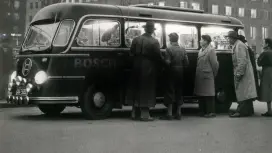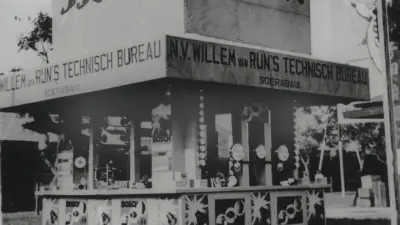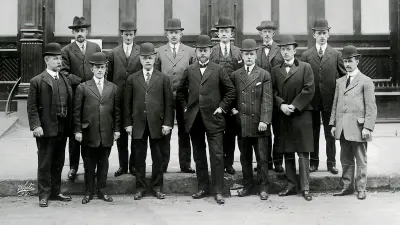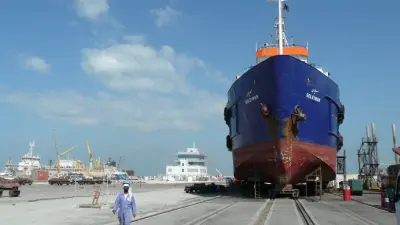Bosch in the Mediterranean
Blueprint for global presence
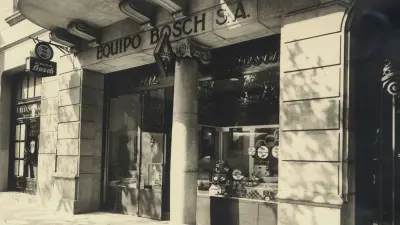
The Mediterranean is a unique cultural region in Europe, Africa, and Asia. It is the birthplace of Islam, Christianity, and Judaism — the epicenter of global empires since the age of antiquity. The region is the cradle of democracy, and is where Latin script and Arabic numerals were first used on their path to becoming standards around the world. For Bosch, the Mediterranean played a decisive role on its path to becoming a global player. Let us take a journey back to an era at the beginning of Bosch’s success story.
A start in the north
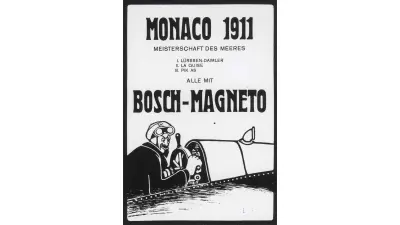
Racing brings success
In January 1897, the Côte d’Azur in France played host to a spectacular event: the world’s first mountain car race. The route? Marseille — Nice — La Turbie. The distance? Two hundred thirty-three kilometers. This legendary race along the French Riviera was the first of many tough tests for driver and machine, and later events would go on to demonstrate which automotive technology was most reliable. For Bosch, the sight of all the cars equipped with Bosch ignition devices crossing the finish line ahead of the pack demonstrated the superiority of its technology. Such triumphs set the stage for success in France, Spain, and Italy, which were major Mediterranean markets in the early days of motoring.
A second start in the south
On July 29, 1913, Robert Bosch wrote to the Cairo-based trading company S. A. Wisnom. “We hereby appoint you our agent for Egypt and Sudan for two years on a trial basis,” his letter read. “The information I have received about your esteemed company leads me to believe that you will represent me well. I do not doubt that we will be able to renew our agreement for another two years.” Around this time, Bosch started to build trade relations in many countries that had not been the focus in the very early days of motoring. This was because their level of economic development and generally low population density meant they lacked a significant automotive market. But this situation changed around 1910, once Bosch had established a foothold on all continents. In the Mediterranean, Bosch opened a sales office in Türkiye, with Egypt and Greece following three years later. Bosch focused on building a presence in both markets with high sales volumes and in promising, newly emerging ones.
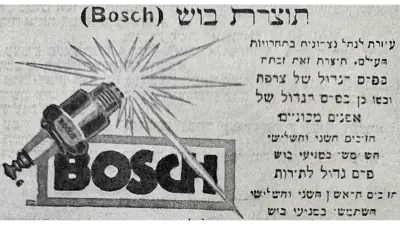
As a result, the percentage of sales the company generated outside Germany was even higher than it is today. Since the magneto ignition device – the main driver of sales – was the world leader and had little competition, Bosch was generating 88.7 percent of its sales outside Germany by the end of 1913.
The first world war brought with it one of the worst crises in the company’s history. Bosch lost most of its assets outside Germany and was forced to rebuild its international relations with its partners in countries that, just a few months previously, had been Germany’s enemies. However, the fresh start also offered an opportunity to build new international networks.
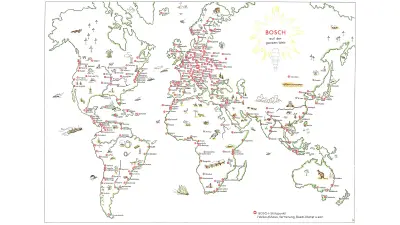
This map in a sales brochure from 1936 shows Bosch’s activities in the Mediterranean over 85 years ago. Even then, Bosch products were already available in nearly a dozen countries. Often, those products were marketed and distributed by established trading partners on behalf of Bosch instead of through company-owned subsidiaries. Such trading partners were able to draw on their local experience when acting on behalf of Bosch.
Closing the ring around the Mediterranean
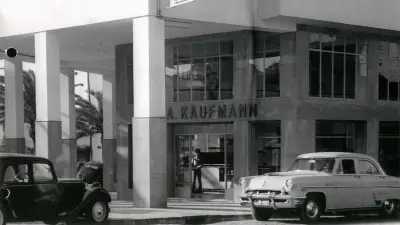
In the 1920s and 1930s, Bosch increased the number of countries with agencies. This applied to regions of the Mediterranean region that had previously been supplied through other regional sales offices. Often, having a direct trading partner within a nation’s borders proved to be the better option, since it allowed the company to receive information about market developments and necessary decisions firsthand, and was able to adapt to them. The new countries included the Levantine states in the southeast Mediterranean region, such as Syria and Palestine, as well as nations along the Adriatic, such as Bosnia and Herzegovina, Croatia, Montenegro, and Slovenia. In the Maghreb, Bosch concluded agreements with regional traders as soon as these countries had gained independence from their colonial powers: Libya in 1954, Algeria in 1956, and Morocco and Tunisia in 1958.
Although the individual stories behind how the company came to be present throughout the Mediterranean may differ, Bosch has remained true to one guiding principle to this day: the freest possible trade and unfettered competition among suppliers. Especially in times of increasing nationalism, the visionary words of Robert Bosch still ring true for this region, as well as for any other: “The purpose of the global economy is to ensure the greatest welfare for the inhabitants of this planet. All the achievements of the human spirit should be available to all our fellow human beings, to the greatest extent possible.”
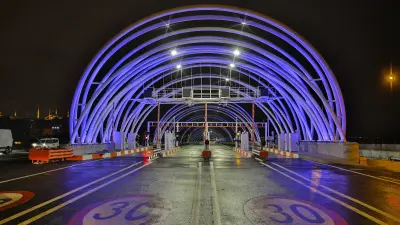
Author: Dietrich Kuhlgatz
